Last week, I staked the claim that “martech is marketing.”
Whatever you think of martech and its relationship to marketing at large — or what you believe its relationship should be — it’s hard to deny that it’s not a part of marketing’s domain. Love it or hate it, marketing technology is entangled in the practice of modern marketing.
The question is simply to what degree.
There’s actually quite a range of possibilities for what “martech is marketing” can mean. It’s a part of marketing, but only by using specific point solutions for the occasional assist. It can be embedded as an official service within the marketing org, even if it’s just a center-of-excellence-of-one. It can be absorbed as a capability by the entire marketing team. Or, theoretically, the technology could take over and dominate marketing.
The latter is pretty much fiction at this point. (Whether it’s utopian or dystopian fiction depends on your point of view.) But companies today fall along the rest of that spectrum, which we can view as a kind of martech maturity model:
I expected some debate around this — is this the right model? the right stages? where should a company strive to be? — but I was a bit surprised to receive the comment that “martech is just a tool” and that what matters is marketing strategy.
I was surprised because I didn’t think the model implied that martech was more important than strategy. No argument from me: great martech with a crappy strategy is worthless.
But I will argue that a great strategy with poor martech support can end badly in today’s digital environment. Strategy alone isn’t enough. You’ve got to be able to execute on it. And martech has become integral to marketing execution. That’s what “martech is marketing” really gets at.
And martech isn’t just the tools. It’s also the skills to wield them effectively.
To explain that position, I came up with an analogy: martech is to marketing what fixing things is to home ownership. If you run marketing, you’re going to need to work with martech. If you own a home, you’re going to need to fix things.
Here are the four stages of martech maturity in this (overextended) metaphor:
Martech Assisted: Hit It with a Hammer
For someone with a graduate engineering background — if you consider computer science an engineering background, which this example obviously brings into question — I have almost no mechanical intuition or skills whatsoever.
I can fix anything in our house… as long as it can be fixed with a hammer.
Hang a picture with a nail? No problem. Screw something into the wall? Sure, by hitting it with a hammer. (That’s legal, right?) Repair a broken toaster? Bam. Bam. Bah, the flimsy thing was done for anyway.
It’s not that my hammer-assisted point solution is completely useless. But it is limited in its effectiveness. For anything that banging on it won’t solve, I need to hire a professional. Which is expensive and takes forever to schedule. Doesn’t lend itself to “agile” home repair.
This is how a lot of companies used to apply martech. They could blast emails and bang out landing pages, and that hammer seemed versatile enough for most campaigns. For anything more sophisticated, they outsourced it to an agency.
But the days when that was sufficient have passed.
Embedded Martech: Have a Handyman in the Family
(That’s a gender neutral “handyman.”)
My father-in-law, of course, is brilliant with tools. The whole toolbox.
Whereas I would take a guess that a socket wrench is what you use to fix an electrical outlet, he seems to intuitively know the right tool for any job.
More importantly, he knows how to use it to achieve the desired outcome — without the collateral damage that I would inevitably inflict on myself or our property.
Whenever he comes to stay with us, my wife has a list of repair projects for him to consider — things that she quite wisely wouldn’t trust to me. God bless him, he cheerfully tackles them. Afterwards, he enthusiastically describes how he fixed them, with me smiling and nodding my head in agreement. “Ah, that makes sense,” I say to things that make no sense to me at all.
If he needs something to get the job done, he picks it up at Home Depot, and we reimburse him. There’s no requirements review. Honestly, I wouldn’t know what questions to ask.
This is how many companies work with martech today. They have a marketing technologist embedded in their department. Larger firms may have a whole marketing operations and technology team. When something martech-ish needs to be done, the rest of the marketing organization turns to them. They pick out the tools they need to make it happen.
Embedded martech can be an effective structure, with much greater capabilities than the “random acts of martech” tinkering of the hit-it-with-a-hammer approach. But it is limited in bandwidth by the size of that embedded martech team.
And not just technical bandwidth. The rest of marketing still doesn’t think in martech, dreaming in black-and-white instead of vibrant Technicolor. The range of technology-inspired ideas they are willing and able to consider is relatively narrow.
Absorbed Martech: A Whole Family of DIY Fixers
There’s an entire sub-genre of home renovation TV shows out there. Fixer Upper. Flip or Flop. First Time Flippers. Property Brothers. Yard Crashers.
Or, as I think of them, horror mysteries.
They usually feature family teams, turning a dilapidated hovel into a shining work of art, often with the motivation to sell it.
I’m secretly envious of these people. If my whole family and I had those skills and imagination, not only would run-of-the-mill home maintenance be a non-issue, we’d be property czars.
We might even have our own TV series.
While we’d still consult my father-in-law as an expert, few projects would be bottlenecked by his availability. We could all pitch in, significantly widening our bandwidth and accelerating the rate by which things got done. We’d dream of bigger projects to pursue.
We’d share most of the same tools, especially the expensive ones. How many table saws does one family need? But any of us could buy a specialized grouting tool or their own Allen wrench (“But, Dad, my name is Jordan!”) without convening a family committee. We would plan out and coordinate big projects, of course. But a lot of smaller tasks could be tackled independently.
The “yourself” in do-it-yourself. My father-in-law would be pleased.
This is the level of absorption of martech that I believe most marketing teams should strive for today. Yes, there’s likely a centralized marketing operations and technology expert or team who designs and runs the core martech stack, providing enlightened data and technology governance and enablement across the department. But it’s centralization that empowers decentralization.
Does every marketer become an app developer? Kind of. They would certainly embrace the democratization of marketing technology and feel comfortable, if not fluent, using a range of martech capabilities day-to-day. If they needed a small, specialized SaaS tool for something, they’d just get it (within reasonable parameters, of course).
More importantly, marketers who had absorbed martech into their thinking would use it as an ingredient in their creativity. Discover, dream, experiment, learn, grow, repeat.
Martech Dominated: Let Robots Do the Work for You
What if you could buy a robot that would do all your home repairs for you?
I know, that seems like science-fiction today. (Although not nearly as much of a fantasy as me hosting my own home renovation TV show.)
It’s probably an inevitable future, but not on the immediate horizon.
Yet while a general intelligence robot handyman is just a Star Wars character for now, more specialized robots that do individual home maintenance tasks are already here.
Vacuuming. Weeding. Window cleaning. Pool sweeping. Floor scrubbing. It’s pretty impressive. They’re not R2D2, but they’re better than a sponge on a stick.
This is very similar to the dreams (or nightmares) of the future of marketing technology: AI will someday do our marketing for us. Martech will dominate marketing. But that’s not likely any time soon. Anyone who tells you otherwise is trying to sell you something — probably with a too-cute brand name attached to it.
Nonetheless, there’s an amazing landscape of specialized martech tools that leverage machine learning, natural language processing, and other legitimate AI techniques to optimize ad spend and click-through rates, score leads, personalize content, monitor social media sentiment, schedule meetings, predict churn risk, detect website anomalies, and more.
Every year, the frontier of what’s possible in martech advances.
Keep your eyes and mind open to these changes and remember the one thing everybody forgets about Gartner’s hype cycle, even especially in martech.
Strategy: The House You Live In, Projects You Pursue
To bring this overextended metaphor to a close, the analogy with strategy is simple: whatever skills and tools you’re using for fixing things around the house — a hammer without a clue, an embedded handyman, fully distributed and absorbed renovation talent, or even the occasional task-specific robot — strategy is the house you live in. And the home projects you pursue.
With the right tools and talent, the more options you have. The more house you can handle. The better outcomes you can achieve. The more ambitious your vision can be.
It’s true in marketing and martech too.
Now, if you’ll excuse me, I need to go find my hammer. Apparently the washing machine is on the fritz.
P.S. Want to move your marketing organization further along the martech maturity curve? Be sure to attend the upcoming MarTech conference in Boston, September 16-18. Our early bird “alpha” ticket prices expire July 13 — don’t let this special rate slip by.
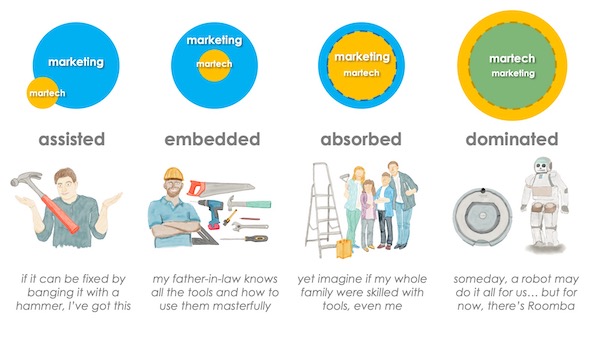
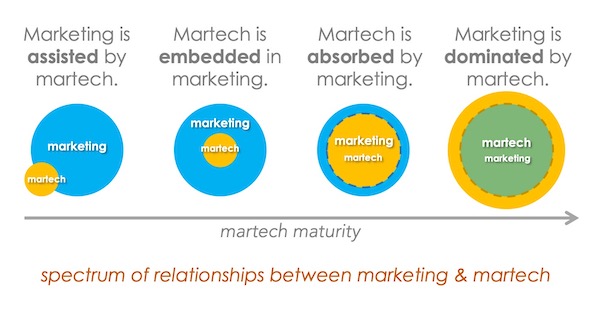
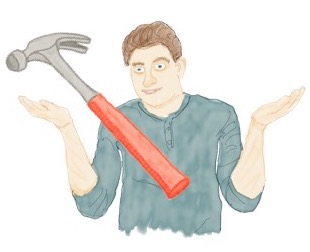
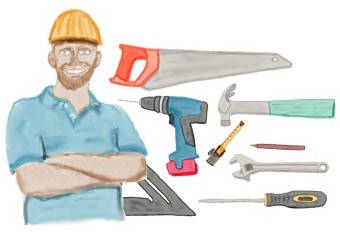

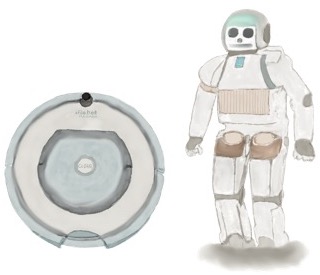
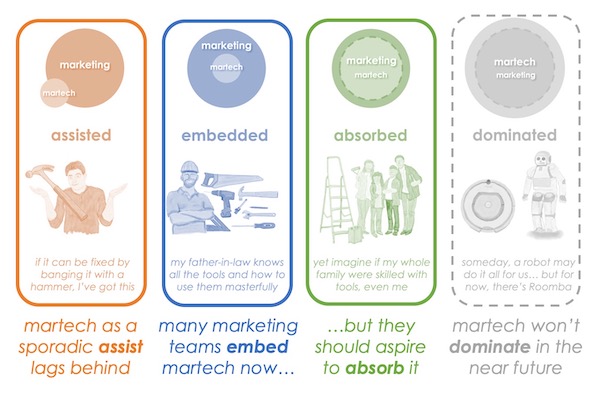
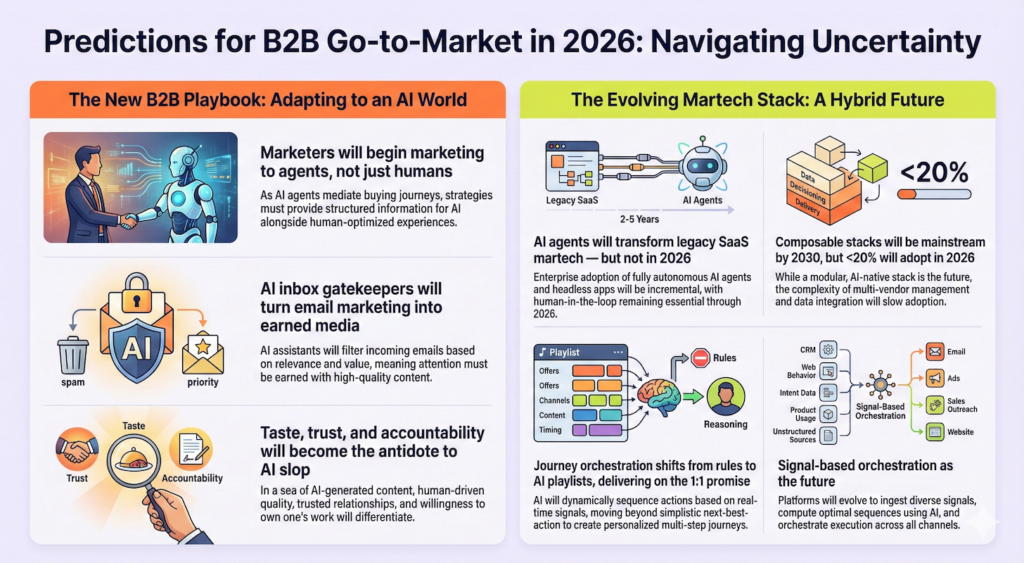
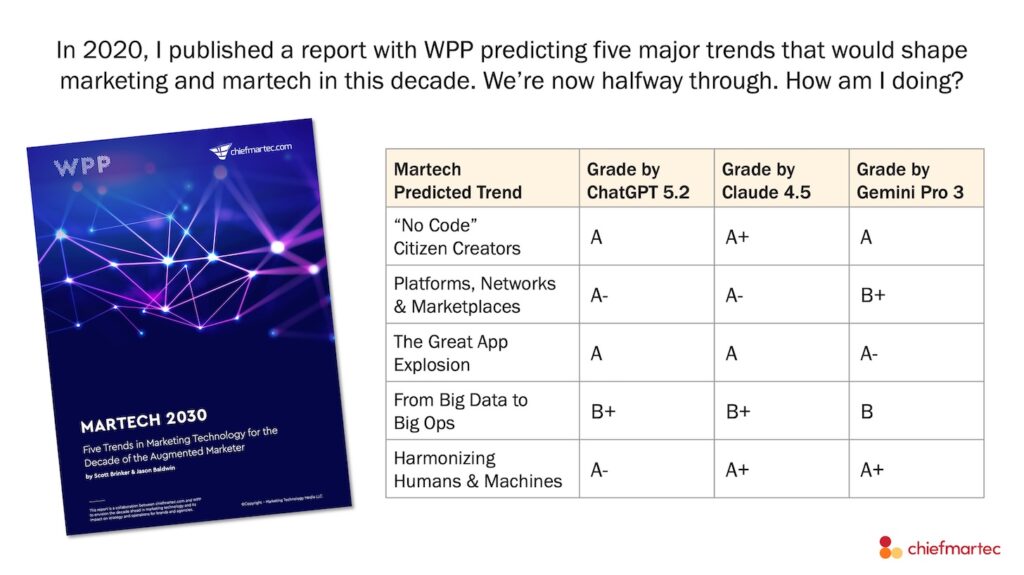
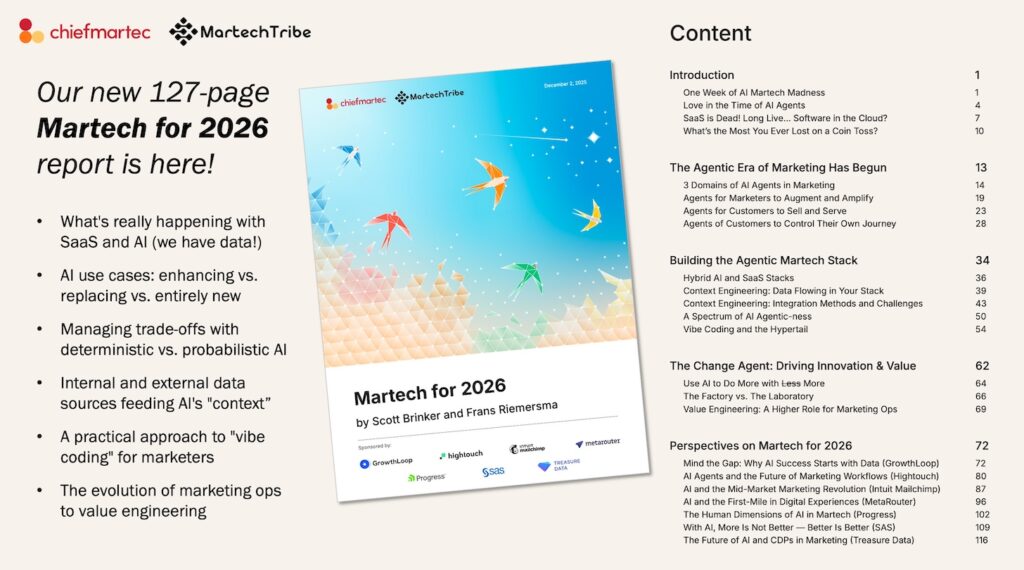
No doubt technology has had a big influence on marketing. But “martech isn’t marketing” anymore than a hammer is carpentry. To that end, being made by hand, is pretty good point of differentiation in some product circles.
Hi, Frank.
I’d humbly suggest that martech is a combination of the tools and the skills. So it’s very much like carpentry. Strategy is deciding what you’re going to use those carpentry skills to build.
Eh? That seems awfully muddy to me, Scott.
You need skill to pound nails straight. You need experience to know where to pound them. It might be useful for an architect to have some experience swinging a hammer, but it’s not necessary.
The CMO can sit down with the VP of Sales and agree on lead scoring and grading. Personally, think it helps a whole lot if one or both of them have fiddled around with a form handler or two, but neither one of them need to physically push a button on a computer to implement what is essentially a policy.
Machines can carry a message, and perhaps inform one, but they don’t create messages or form connections. Martech certainly facilitates/enables/scales marketing, and you can to some degree decide how to use it, but these are not one and the same.
I think we might be getting hung up on the semantics of what “is” is (sorry).
My point is that you not only need nails and a hammer — and many other tools — to build a house, you also need skills for wielding those tools.
However, I wholeheartedly agree with your point that there’s a bigger picture, the “architecture” that defines what is being built. Without a guiding blueprint, wielding tools is sound and fury signifying nothing.
“Martech is marketing” is an acknowledgement of the necessity to have tools and skills for wielding those tools in modern marketing. It’s necessary, but not sufficient. But you also need a number of other ingredients: strategy, leadership, insight, messaging, design, and maybe even a pinch of luck.
And maybe humanity too. Thanks for entertaining a civil debate.
Nowadays Marketing is much more than Marketing (than it used to be!) It is a system where many components of different natures collaborate to a common end. The collaboration is so relevant than if one fails it may take all the others to fail. The difference I see with the house analogy is that I can have a picture badly installed on the wall and still be able to have all the rest of the house functional; with martech one broken piece can put me to live under the bridge (a little dramatic I know). Much more than just tools martech makes part of an interconnected and interdependent system where the positive management generates just positive results but the under management generates exponentially bad results. And this is just the beginning! Cheers! (Another great piece Scott)
I am sorry, I didn’t mean “under management” but “mismanagement”.
Excellent point.